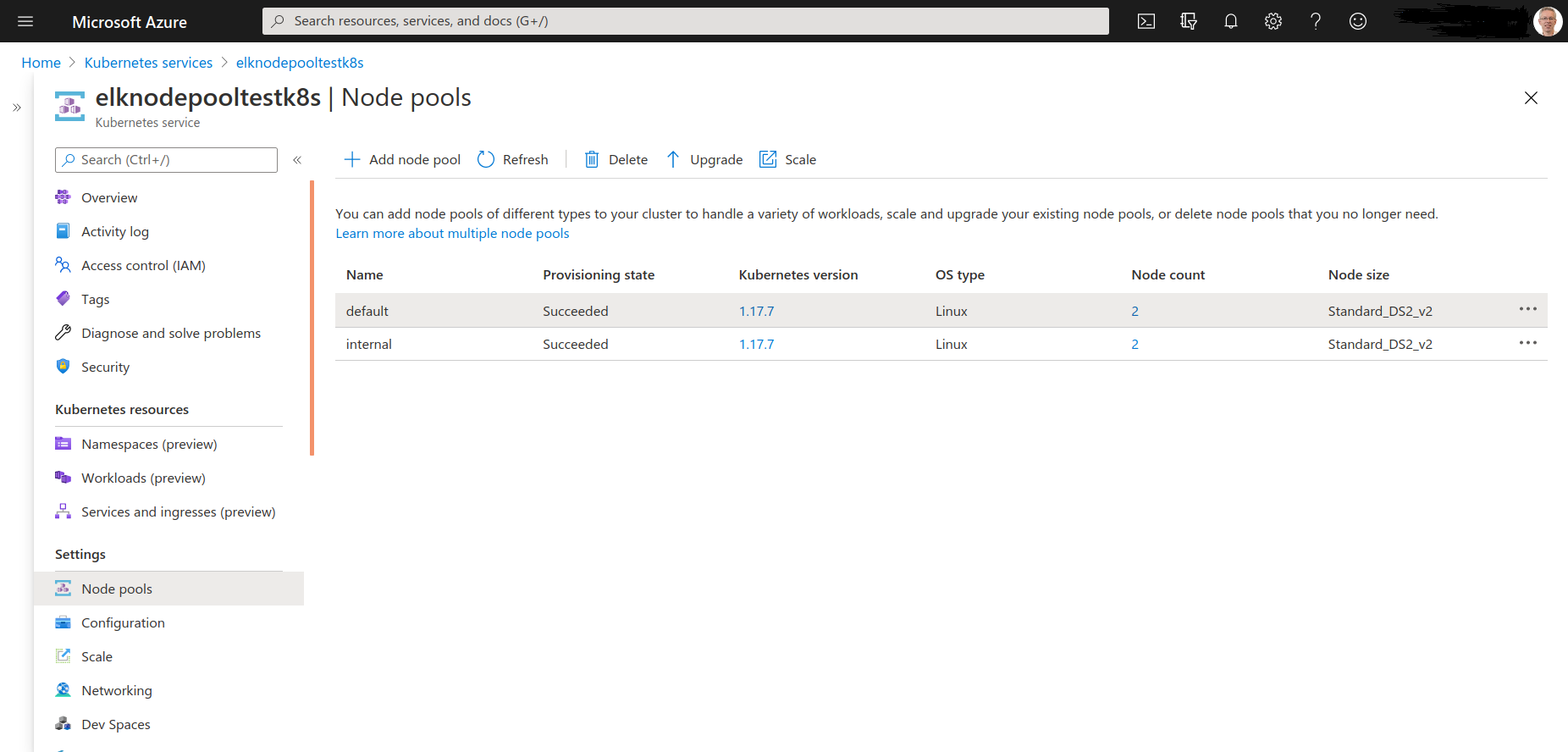How to achieve zero downtime of Kubernetes Services with Azure
Upgrading of a Kubernetes Cluster onto a new version is no easy task, but doable! The trick is to establish a workflow and to stick to it. It can look something like this:

We are starting with a kubernetes cluster consisting of 2 nodes, running version 1.17.7
Use a cluster containing of 2 node pools
We enhance our cluster with an addional nodepool, which will host the running services, while we are upgrading the first nodepool onto a higher version.
$ export RESOURCE_GROUP=YOUR_GROUP_NAME; export CLUSTER_NAME=k8scluster
I will reuse these environment Vars in this example
$ az aks nodepool add --resource-group $RESOURCE_GROUP --cluster-name $CLUSTER_NAME --node-vm-size Standard_DS2_v2 --name internal --node-count 2
Now we are running a cluster with 2 node pools, the next step is to shift all running services onto the new cluster nodes
$ kubectl get nodes -o wide
| NAME | STATUS | ROLES | AGE | VERSION |
|---|---|---|---|---|
| aks-default-13160437-vmss000000 | Ready | agent | 5h59m | v1.17.7 |
| aks-default-13160437-vmss000001 | Ready | agent | 5h59m | v1.17.7 |
| aks-internal-13160437-vmss000000 | Ready | agent | 46m | v1.17.7 |
| aks-internal-13160437-vmss000001 | Ready | agent | 47m | v1.17.7 |

Now we can just disable the nodes on the first node pool, all pods get evicted and are restarted on the other node pool. Just take care that your replica count is greater than 1
$ kubectl drain aks-default-13160437-vmss000000
$ kubectl drain aks-default-13160437-vmss000001
Now all pods will get evicted from the first nodepool and get restarted on the other nodepool, enabling a safe upgrade of the unused nodes in the first pool.
The next step is to upgrade the k8s control plane onto the new version.
$ az aks get-upgrades --resource-group $RESOURCE_GROUP --name $CLUSTER_NAME
and the pick your version (i’m using 1.17.9 here as an example)
$ az aks upgrade --resource-group $RESOURCE_GROUP --name $CLUSTER_NAME --kubernetes-version 1.17.9 --control-plane-only
After having upgraded the control plane, we can upgrade the first node pool
$ az aks nodepool upgrade --resource-group $RESOURCE_GROUP --cluster-name $CLUSTER_NAME --kubernetes-version 1.17.9 --name default
The next step is simple, just uncordon all nodes in the node pool default and drain each node in node pool internal
The upgrade process uncordons all nodes in the upgraded pool, just check that and then drain each node in the other pool. This way all your pods will migrate back to the default pool, which is now running on the higher version.
Finally you can upgrade the node pool internal or just delete it.
But be aware that you need at least one node pool in the status of System, otherwise you won’t be able to delete the other one.
$ az aks nodepool update --resource-group $RESOURCE_GROUP --cluster-name $CLUSTER_NAME --name default --mode System
$ az aks nodepool delete --resource-group $RESOURCE_GROUP --cluster-name $CLUSTER_NAME --name internal